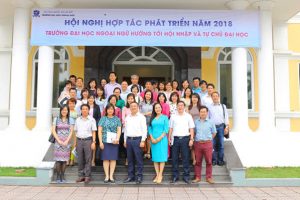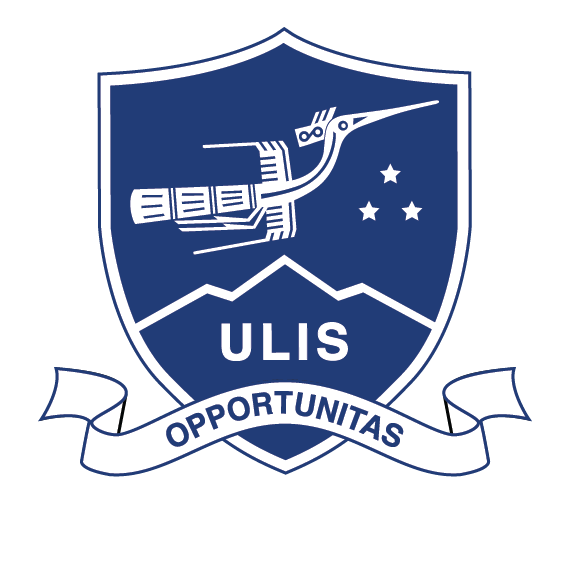Development and cooperation towards integration and tertiary autonomy
On April 26th, 2018, the University of Languages and International Studies – Vietnam National University, Hanoi (ULIS – VNU) organized the Conference on Development and Cooperation 2018. This is the second thematic conference on development and cooperation of the university. This year’s topic is “ULIS – VNU towards integration and tertiary autonomy”.
The conference was attended by Dr. Do Tuan Minh, ULIS’s President, Assoc. Prof. Dr. Ngo Minh Thuy, ULIS’s Vice President and Dr. Nguyen Xuan Long, ULIS’s Vice President, leaders and staff in charge of development and cooperation. Dr. Nguyen Thi Anh Thu – Head of Cooperation and Development Committee of VNU also took part in and addressed at the conference.
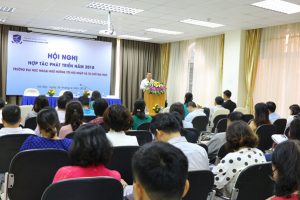
Results, strengths and suggestions
Wrapping up the development and cooperation activities in 2017, Dr. Do Minh Hoang said that the development cooperation activities had been actively implemented in order to create more study and exchange for opportunities lecturers and students, boost the research capacity, elevate home and overseas position of ULIS and increase the index of international integration and additional resources. Forms of international cooperation under agreement had been implemented, namely student exchange; study referral, overseas internship; partnership programs; scholarships, researches, seminars; expert and lecturer secondment and reception; joint research and publication; graduate co-supervision. As a result, the opportunities to travel abroad for students, sponsorships, the proportion of lecturers and staff going abroad, joint training activities, international student reception and cooperation activities in the country are all developed with regard to both quantity and quality. However, the attainments remain with some certain limitations.
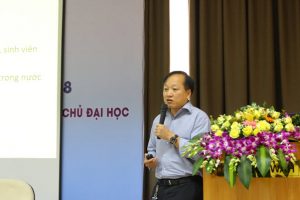
Through activities that have been implemented, the Director of Development and Cooperation Office realized that ULIS had some can-be-promoted strengths, namely teaching Vietnamese, experiencing Vietnam, foreign internship, studying abroad to get degrees or credits abroad, receiving foreign interns and cooperating in research and international publication. Dr. Do Minh Hoang also put forward some solutions to strengthen this task such as: Units should proactively propose partners and forms of cooperation, encourage short-term internship with out-of-pocket fees and set up a steering committee as the focal point to build a roadmap for introducing new foreign languages.
Additional innovation, creativity and activeness
Participants also listened to six presentations: “Enhanced integration in scientific research” (Prof. Dr. Lam Quang Dong and Master Mai Van Hoa); “Increase the integration of full-time training programs at ULIS” (Dr. Le Hoai An); “Build models for improving foreign language skills of civil servants, officers and officials in the Customs, Foreign Affairs, Tourism sectors and Border Guards forces in the Northwest (Dr. Nguyen Thi Minh Tam); “Promote the cooperation between ULIS and enterprises” (Master Nguyen Huyen Trang); “Overseas study programs for ULIS’s staff” (Dr. Bui Dinh Thang); “Increase the activeness of units in development and cooperation activities” (Dr. Hoa Ngoc Son and Dr. Huynh Anh Tuan). Accordingly, presentations specially emphasized the active role of each unit and office/faculty/center staff in collaboration with the Governing Board and Cooperation and Development Office to “Create opportunities together”.
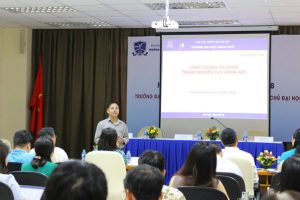
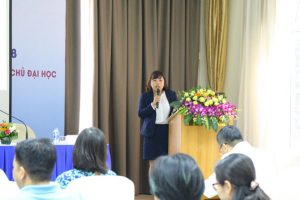
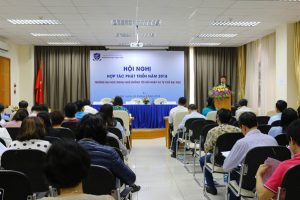
Addressing at the conference, Dr Nguyen Thi Anh Thu highly appreciated efforts that ULIS had made in the cooperation and development task. She rated ULIS as the university with the most opportunities in VNU to expand this task in the context of current integration. ULIS should thus build upon its strengths and make use of its position as a university specializing in foreign languages of VNU.
Concluding the conference, Dr. Do Tuan Minh once again attached importance to the cooperation and development task. Cooperation and development involve all of the university’s activities; as a result, we should think of appropriate solutions and directions to achieve sustainable development. President Minh asserted that ULIS’s integration index was gradually rising but not quite porportionately to its potentials, which still posed some certain obstacles to the university. The Representative of the Management Board also stated that ULIS would paid more attention to the development and cooperation task, which was the motivation for its development. Therefore, President Minh hoped that all units of ULIS would cooperate with one another in a more synchronous manner. Finally, the message that President Minh would like to extend to lecturers and units was “Be more creative, innovative and active in the development and cooperation task” so that ULIS will firmly step forward on the path of integration and tertiary autonomy.
